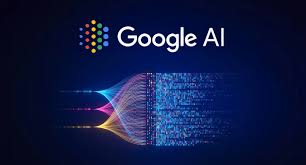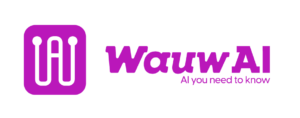
Did you know OpenAI was founded initially out of fear? Fear that Google might one day dominate the AI landscape. That fear now feels eerily prophetic. At Google I/O 2025, the tech giant unleashed a tidal wave of AI announcements so massive, we could write ten reports on it — but more importantly, it marks a turning point in tech history.
For years, Google trailed behind more agile players like OpenAI and Anthropic. But this year, it rose like a phoenix. I/O wasn’t just a product showcase; it was a power move, a declaration: Google is back at the frontier.
CEO Sundar Pichai opened the keynote with a tongue-in-cheek remark:
“Apparently, it’s the start of Gemini season. Not sure what’s so special about that — it’s Gemini season every day at Google.”
It wasn’t just a joke. What followed was a dazzling display of AI firepower — not trickled out over months, but launched all at once like a software monsoon.
The Highlights
Veo 3: Video + Audio Generation
Veo 3 doesn’t just create video — it generates immersive soundscapes, from ambient noise to character dialogue. It’s like having a film studio in your prompt bar.
Flow: AI-Powered filmmaking in the browser
Google introduced Flow, a sleek AI film studio with camera controls, a scene builder, and a gallery of prompts to spark inspiration. Filmmaker Henry Daubrez called it a “leap forward” for creatives.
Gemini 2.5 Pro: A New AI Benchmark
The latest Gemini iteration now tops every leaderboard in reasoning and multimodality. The new Deep Think mode handles complex tasks more efficiently and collaboratively.
AI that acts on your behalf
Agent mode & Project Mariner
Google unveiled Agent Mode, where Gemini can browse websites, filter listings, and even schedule appointments for you — all from within the app. It’s a broader move to make Gemini your faithful digital assistant.
Astra: The AI that understands your world
Project Astra, a research prototype, interprets your environment in real time and integrates with Gemini Live for next-gen AR interaction.
Personalisation gets… Intimate
Google is giving Gemini access to all your Google apps. That road trip your friend asked about? Gemini digs through Gmail, Photos, and Drive to generate a personal response in your tone. It’s brilliant. And yes, a little scary.
Search reimagined
Say goodbye to keyword queries. In AI Mode, you can type full-blown questions, and Gemini delivers long-form answers, comparisons, and even checkout options. It’s not just a search engine anymore. It’s a do engine.
You can now try on clothes virtually using a photo of yourself.
Welcome to the XR Future
Google also unveiled Beam, a next-gen version of Project Starline that turns flat video into 3D calls with real-time head tracking. They’re partnering with Samsung and Warby Parker on stylish XR glasses — a direct shot at Meta’s Ray-Bans.
The numbers are staggering
In April 2024, Google processed 9.7 trillion tokens.
In April 2025? Over 480 trillion.
That’s 50x growth in a single year.
Roughly 150–200 million tokens every second.
Google isn’t just scaling AI. It’s redefining digital infrastructure with its new Ironwood TPUs, which deliver 42.5 exaflops per pod.
The Strategic Pivot: from replacement to collaboration
Last year’s narrative was “let agents do the work.” This year? It’s all about co-intelligence. Google’s message is: You plus AI can do more together.
Gaining user trust is critical. Google needs you to be comfortable with AI reading your Gmail. This softer, centaur-like framing—working with AI instead of fearing it—is as strategic as it is psychological.
But is it all just marketing?
Critics like Will Douglas Heaven from MIT Technology Review argue that Google wants AI to become so embedded that it’s invisible — a background force you won’t question.
Casey Newton from Platformer points out the classic Google issue: product confusion. Search now has AI Overviews, AI Mode, and Gemini Search—all different and overlapping.
The Open Web at risk?
Perhaps the most sobering takeaway: if Google can generate the information you’re looking for, why visit other websites?
As Google’s own Liz Reid admits, search result pages were “a construct.” Now, they’re becoming a relic. In the new paradigm, Google isn’t the gateway to information — it is the information.
Why this matters
Sundar Pichai calls this the next phase of the AI platform shift, where decades of research become real for billions. Search was just the beginning. “Doing” is the new frontier.
Google doesn’t just want to organise the world’s information anymore.
It wants to do things for you. To be your digital life.
Final thoughts
Everything is changing—but not too fast, not too visibly. That’s Google’s play. There is a calm surface, with seismic shifts underneath. Whether this will empower us or engulf us depends on how we respond.
But one thing’s clear: Gemini season has arrived. And it’s here to stay.

